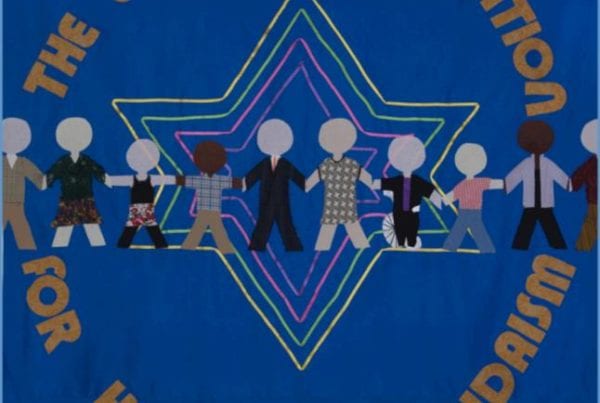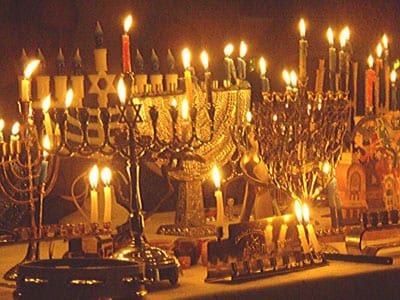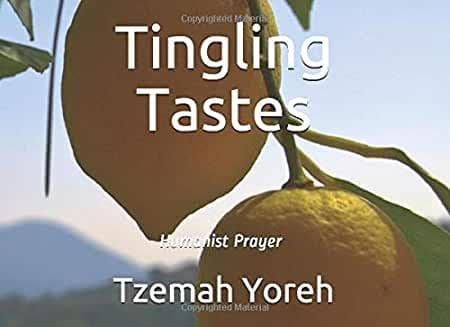The Lord is my shepherd, I shall not want… Or not
by Hy Gold
Yom Kippur 2009
I wish to thank Rabbi Peter for asking me to share my thoughts on this Yom Kippur service. I believe he asked me and Devera to speak because we each have undergone a tragic episode and had somehow lived through it, survived it and went on to do our life work, day by day. Yom Kippur is the day in which this process of self-reflection is a prominent part. But as humanistic Jews, we reflect not only on the past but look forward. To quote from a Yom Kippur sermon given at the Congregation Bet Or in 2003 by Rabbi David Oler: “On Yom Kippur we focus introspectively in our behavior and envision who it is we want to become. Let us develop a conscious awareness of how our daily actions impact the future of the world – because they do.”
Let me tell you a bit about myself and how I came to this day. I was born into a secular, left-wing family, so that although I was bar mitzvahed, as all 13 year old boys were in my neighborhood, I grew up as an activist for all sorts of political and social causes. On looking back now, I didn’t always think of myself as Jewish, since there were so many worldly problems to be solved: countering fascism, preventing nuclear war, fighting racism and poverty. Early on, anti-Semitism was not the number one problem for me, mainly I think, because in my=2 0Jewish neighborhood, I didn’t have to meet it face to face. Even the founding of Israel, while welcomed, was somewhat a splintered event. After all, I had always thought that Jews and Palestinians should share the land and live happily ever after. But when the hatred for Jews and Israel became so clear that even I couldn’t disregard it, I realized that I was really a Zionist, because I had come to believe that Jews should have a home of their own.
And so, I grew up and matured. I met and married the love of my life, Ruth. We had two sons and I became a doctor, caring for a black, Hispanic and poor population living in East Harlem, mainly as part of my HIP practice. I continued to participate in progressive campaigns, and am proud to say that I was in Washington, DC where I heard Martin Luther King, Jr. give his “I have a dream” speech.
Our sons grew up too, Ted more political than Matt. They got good educations, Ted at Stuyvesant High School and Columbia College, and Matt at the Bronx High School of Science and Lehman College. Matt went into the field of Recreational Therapy, and is now the head of the department of Occupational and Recreational Therapy at the Psychiatric Institute of Columbia-Presbyterian Medical Center. He has recently received a Lifetime Achievement Award from his professional organization.
Ruth received her Ph.D. in Mathematics and Statistics from Columbia University, and taught brilliantly at Columbia’s Teachers College until her retirement in 1988. As Rabbi Peter mentioned, she developed Alzheimer’s Disease, and was very well cared for in a long term care facility in Riverdale until her recent death. I’ve always known the tragic nature of this disease for anyone who has it, but it seemed doubly tragic for it to have attacked the mind and body of someone as brilliant, warm and loving a person as Ruth.
And now to the tragedy I alluded to. Ted at Columbia joined the Friends of the Student Nonviolent Coordinating Committee, in support of the civil rights struggles of the 1960’s in the South. He later was a member of SDS, Students for a Democratic Society, and was part of the more moderate “praxis axis” faction. When the more radical faction developed into the activist-radical group, the Weathermen, he was a member of that too, because he felt that enough was not being done to end the Vietnam war and to fight racism in the states. Ted and I had several conversations during this time, since I was getting more concerned at the shift to violence on the part of the Weathermen. Ted told me he was torn between distrust of extreme violence and the frustration at the lack of progress of less violent political activity. He took part in the take-over of several Columbia University buildings in 1968, and I remember climbing up into one of the buildings one evening to minister to a sick Weather person after Ted had called me. I guess he was proud of my athleticism as well as the support I had given.
The more violent Weathermen, growing more frustrated, were planning bomb attacks on military facilities. On the night of March 6th 1970, one of them accidently connected the wires to a bomb, which exploded, killing three people including Ted. One of his best friends and his former room-mate while attending Columbia later told me that Ted had gone to the building to try to dissuade them from the planned bombings.
His death was devastating to Ruth, to Matt and to me. To have lost such a talented and committed young man of such great potential, one we loved and had seen grow from a lively and bright youngster to an adult who could work selflessly for others less fortunate, was too much for us to bear. Ruth felt the loss very deeply, though I didn’t speak openly about it as much as she so freely did.
Rabbi Peter has asked me, how did we cope? We each had our ways and didn’t try to change the other in this regard. Ruth wanted to visit his grave site frequently, which we did. I wanted to learn more about his activities in the years after he left home. I spoke to many friends and co-workers in his post-graduate job as a teacher in a private school for students who had not been helped by the city’s school system. I learned that he was a wonderful role model for many of these troubled students, who20had never been able to adjust to school before. A parent wrote to us that Ted not only worked with her son at school but also played ball with him. Several of Ted’s friends have kept in touch with us all through the years, and we learned so much from them of his desire to help others, that we can envisage the teacher he might have become. I suppose that’s also a way of coping.
Matt and his wife Lynn have given me tremendous support in the past and in my recent loss. So have their now grown children. Carly is a staff member in the Department of Occupational Therapy at Presbyterian Hospital. Ted is a claims adjuster for an insurance company, and is beginning to climb up the ladder in his chosen field of work.
I have also received support from the two organizations to which I belong. One of course is our congregation, in which I enjoy our Shabbat and High Holiday services. I also serve with Irma Shore as co-chairs of the Social Action Committee, which gives me the opportunity to help better the world. This honors Ted’s memory and supplies me with the strength to cope with life’s unexpected tragedies. I can strongly recommend volunteering to work with any of our congregation’s wonderful committees, including our Social Action Committee.
The other organization is Quest, a group of retired people who devise, present and attend courses on a wide variety of subjects. I recently20presented a semester-long series of lectures on the life and works of Baruch Spinoza, and am working on another semester of lectures on other aspects of his life.
Ted is never far from our thoughts, but we have continued to do what we have always wanted to do. Peter recently asked me if I had ever thought of asking God for help in coping with my losses. I told him what he already knew: “No Way!” The only god I know is Spinoza’s God-Nature, which includes the entire Universe, with all my relatives and friends, and that of course embraces all of you here. I thank you for helping me in looking to the future as well as remembering the past.



